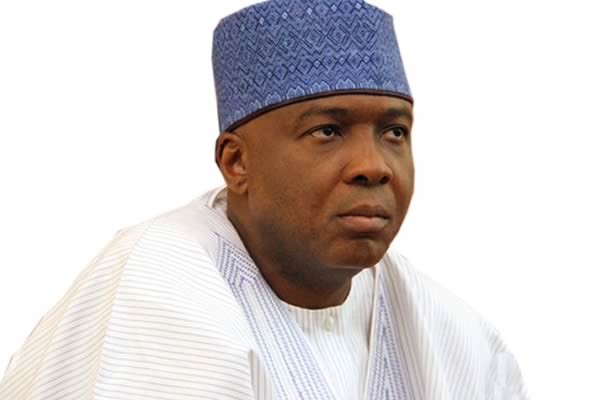- Senate Under Fire Over N1.4tn Demand
The Senate, on Friday, came under attack over a plan to allocate 20 per cent of the national budget (N1.4tn) for constituency projects.
Socio-political groups and experts, in separate interviews with Saturday PUNCH on Friday, said the demand for N1.4tn for constituency projects, clearly indicated that the lawmakers were insensitive to the plight of Nigerians.
They noted that the lawmakers had not given a good account of themselves in handling the projects.
The Senate had on Thursday, approved for further legislative work, a bill seeking to reserve 20 per cent of annual budgets for its members to execute constituency projects exclusive of the executive arm of government.
Going by the projected budget of N7.2tn for 2017, which President Muhammadu Buhari is to present to the joint session of the National Assembly on Wednesday, the lawmakers are expected to get the sum of N1.4tn allocation for constituency projects.
Condemning the proposal, groups and individuals including the Campaign for Democracy and the convener of the Coalition of Northern Politicians, Academics, Professionals and Businessmen, Dr. Junaid Mohammed, said it was another way of increasing corruption in the country.
President of the Campaign for Democracy, Bako Usman, said that the National Assembly members should concentrate on their oversight functions.
He said, “When their primary responsibilities are something they are not meeting up with, (like issues of oversight of projects), it surprises me when constituency project allocation becomes more interesting to them.”
On his part, Mohammed described the plan to include constituency projects in the budget as an attempt by the National Assembly to legitimise corruption.
He urged President Muhammadu Buhari to stop what he described as “a heist of our common patrimony.”
Mohammed said this in response to enquiries by Saturday PUNCH on the subject during a telephone conversation on Friday.
Mohammed, who was a member of the House of Representatives during the Second Republic, said there was no justification for such a legislation.
He said, “It (the law) is not only unfair, it is also utterly irresponsible. It is a violation of all the Revenue Expenditure and Finance Act we have inherited from the British and the ones we inherited from the first, second, third, fourth, up to the current republic.
“It cannot be justified by constitution; it cannot be justified by the law they are trying to enact.
“The executive will do well to ignore such a law because it cannot be justified by our Constitution. It is ultra vires to our Constitution and any known law of decency.
“The idea that the National Assembly should initiate all matters pertaining to budget and fiscal responsibility is something I find untenable and I am yet to be persuaded.”
Speaking in a similar vein, the Executive Director of the Civil Society Legislative and Advocacy Centre, Auwual Musa, said, “What we need now are laws and policies that will take Nigeria out of this recession and not this distraction.
“Our lawmakers cannot continue to act as if Nigerians who voted them into office don’t matter. This issue of constituency projects has been used and abused by our lawmakers. I am yet to be con.tvinced that making it a part of our budget will solve our problems.”
Also, the Executive Secretary, Anti-Corruption Network, Ebenezer Oyetakin, said that the implementation of the projects should be left for the executive.
Oyetakin stated, “It is high time the National Assembly corrected itself and did the needful by identifying projects priority for their constituencies and allowing government agencies in charge to implement, execute and handle finances.
“The approach to the constituency budgets at National Assembly has become a way to recoup the huge cost of running elections and it is corruption personified.”
The President, Committee for the Defence of Human Rights, Malachi Ugwummadu, said, “The degree of disconnect between the Nigerian State actors and the citizens is incomprehensible.”
Speaking on the development, some experts described the move by the Senate as premature.
The Head, Banking and Finance Department, Nasarawa State University, Keffi, Uche Uwaleke, said that while the country needed to develop the rural communities through investment in constituency projects, channeling it through lawmakers would not guarantee the needed result.
In his comment, a former Managing Director, Unity Bank Plc, Mr. Rislanudeen Mohammed, said as far as budget implementation was concerned, constituency projects had never been effective.
He said, “Constituency projects have never been effective as far as budget implementation is concerned.”


 Forex3 weeks ago
Forex3 weeks ago


 Naira2 weeks ago
Naira2 weeks ago
 Billionaire Watch2 weeks ago
Billionaire Watch2 weeks ago




 Naira3 weeks ago
Naira3 weeks ago




 Naira2 weeks ago
Naira2 weeks ago




 Naira1 week ago
Naira1 week ago




 Naira4 weeks ago
Naira4 weeks ago




 Naira4 weeks ago
Naira4 weeks ago





















